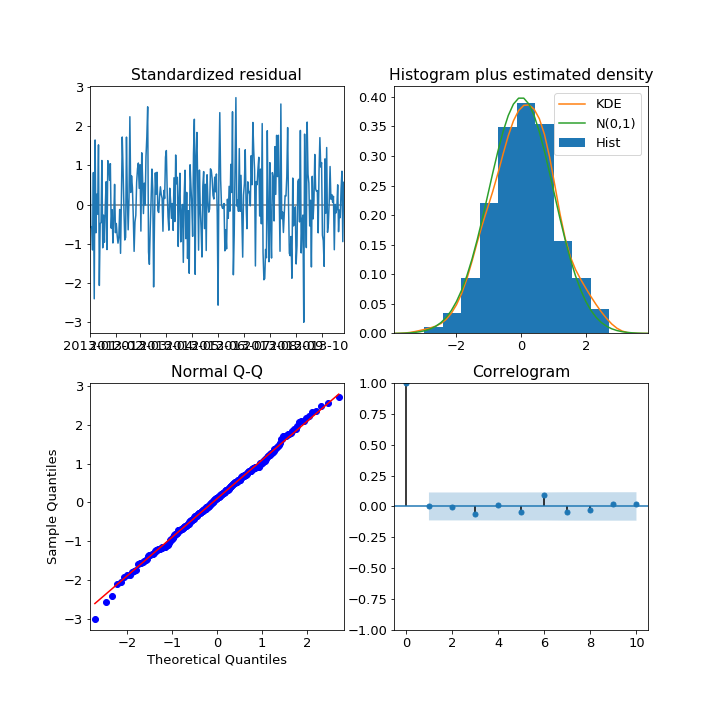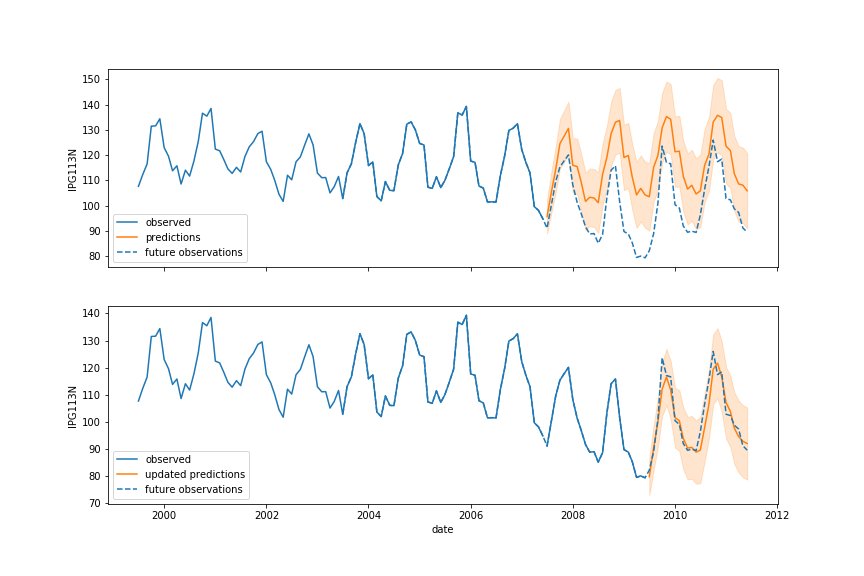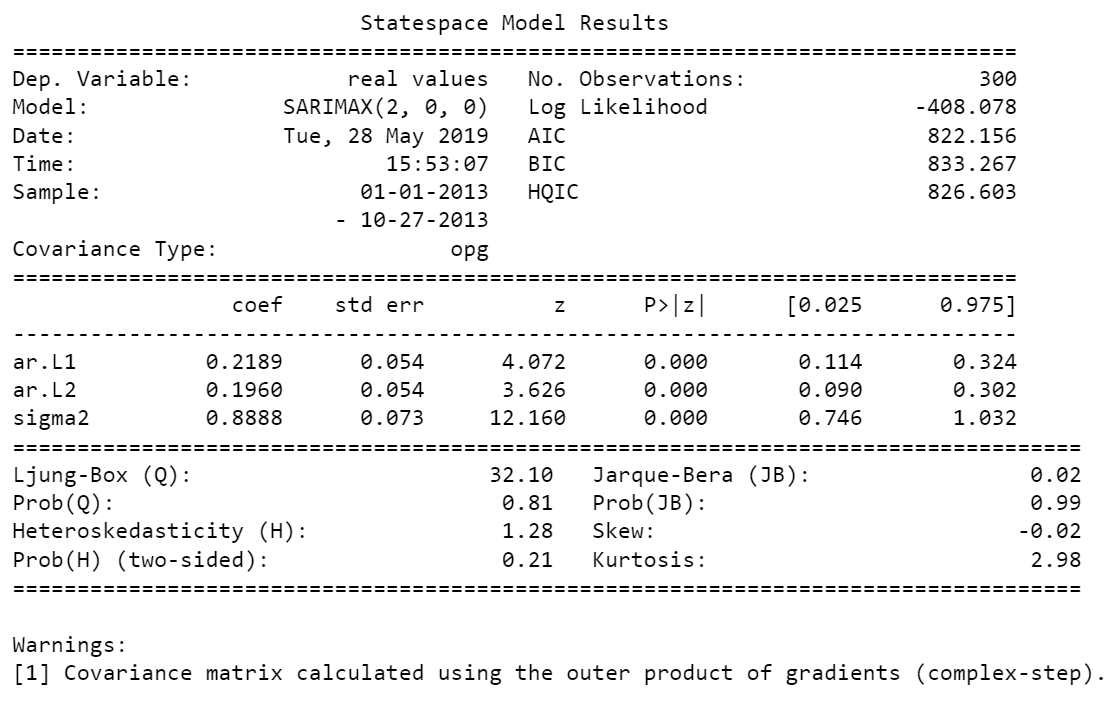Automation and saving
ARIMA Models in Python

James Fulton
Climate informatics researcher
Searching over model orders
import pmdarima as pm
results = pm.auto_arima(df)
Performing stepwise search to minimize aic
ARIMA(2,0,2)(1,1,1)[12] intercept : AIC=inf, Time=3.33 sec
ARIMA(0,0,0)(0,1,0)[12] intercept : AIC=2648.467, Time=0.062 sec
ARIMA(1,0,0)(1,1,0)[12] intercept : AIC=2279.986, Time=1.171 sec
...
ARIMA(3,0,3)(1,1,1)[12] intercept : AIC=2173.508, Time=12.487 sec
ARIMA(3,0,3)(0,1,0)[12] intercept : AIC=2297.305, Time=2.087 sec
Best model: ARIMA(3,0,3)(1,1,1)[12]
Total fit time: 245.812 seconds
pmdarima results
print(results.summary())
results.plot_diagnostics()

Non-seasonal search parameters
Non-seasonal search parameters
results = pm.auto_arima( df, # datad=0, # non-seasonal difference orderstart_p=1, # initial guess for p start_q=1, # initial guess for qmax_p=3, # max value of p to test max_q=3, # max value of q to test )
1 https://www.alkaline-ml.com/pmdarima/modules/generated/pmdarima.arima.auto_arima.html
Seasonal search parameters
results = pm.auto_arima( df, # data ... , # non-seasonal arguments seasonal=True, # is the time series seasonalm=7, # the seasonal periodD=1, # seasonal difference orderstart_P=1, # initial guess for P start_Q=1, # initial guess for Qmax_P=2, # max value of P to test max_Q=2, # max value of Q to test )
Other parameters
results = pm.auto_arima( df, # data ... , # model order parametersinformation_criterion='aic', # used to select best modeltrace=True, # print results whilst trainingerror_action='ignore', # ignore orders that don't workstepwise=True, # apply intelligent order search )
Saving model objects
# Import
import joblib
# Select a filepath
filepath ='localpath/great_model.pkl'
# Save model to filepath
joblib.dump(model_results_object, filepath)
Saving model objects
# Select a filepath
filepath ='localpath/great_model.pkl'
# Load model object from filepath
model_results_object = joblib.load(filepath)
Updating model
# Add new observations and update parameters
model_results_object.update(df_new)
Update comparison

Let's practice!
ARIMA Models in Python


